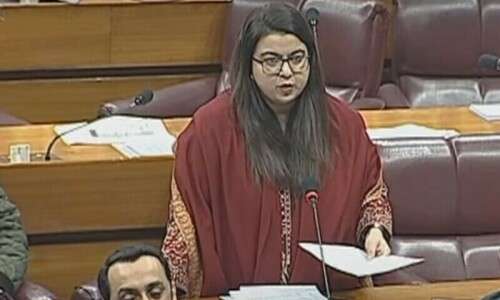Introduction: Pakistan is intensifying its efforts to control the spread of anti-state propaganda and misinformation across social media platforms. Recent developments show that the government is taking stringent action against individuals who use digital channels to spread false narratives that could threaten national security. A recent case saw seven more people charged with spreading harmful misinformation, including figures such as Muhammad Sohail, Muhammad Junaid, and Sheikh Muhammad Ehsan. These individuals are accused of using platforms like WhatsApp and X (formerly Twitter) to spread malicious content. This action is part of a larger government initiative to tighten digital laws and ensure accountability in the virtual space.
Pakistan’s Crackdown on Anti-State Propaganda
A Surge in Cases Against Social Media Misuse
Pakistan has seen a surge in the registration of cases against individuals accused of spreading anti-state content through digital platforms. In just a short span, the authorities have booked seven more individuals, adding to the 12 cases filed the day before for similar offenses. The accused individuals have allegedly contributed to the spread of false narratives that undermine the country’s political stability, security, and societal harmony. The government’s decision to tackle these issues aggressively underscores its growing concerns over the misuse of social media.
The accusations against these individuals are serious, as the spread of misinformation can fuel public unrest and create a hostile environment. Muhammad Sohail, Muhammad Junaid, and Sheikh Muhammad Ehsan are among those accused of using platforms like WhatsApp and X (formerly Twitter) to propagate narratives that could cause damage to state institutions. Their actions have raised alarms within the government, prompting immediate legal actions to curb these types of behaviors.
The Role of Social Media in Misinformation
Social media platforms, especially WhatsApp and X, have become powerful tools for communication in the modern era. While these platforms are used for legitimate purposes, they can also serve as breeding grounds for misinformation. Misinformation, if unchecked, can pose severe risks, including the destabilization of governments, the spread of hate speech, and the incitement of violence.
The spread of false narratives through these platforms often operates under the radar of regulators, making it challenging for governments to identify and prevent the harmful effects of such content. In response, Pakistan is stepping up its digital laws to curb these issues, and the recent booking of several individuals is a testament to its zero-tolerance policy toward anti-state content on social media.
Pakistan’s Digital Laws Overhauled to Curb Online Harm
Proposed Amendments to the Prevention of Electronic Crimes Act (PECA)
The government of Pakistan is pushing for significant changes to the Prevention of Electronic Crimes Act (PECA), which aims to address the growing concerns around digital content misuse. These amendments are designed to make it easier to track and regulate harmful online activities, especially those that target the government, law enforcement agencies, or state institutions.
The proposed changes will expand the legal framework to include stricter measures to tackle the spread of misinformation, fake news, and hate speech across digital platforms. Under these reforms, individuals found guilty of spreading false content could face severe penalties, including up to five years of imprisonment, fines as high as Rs. 1 million, or both. These penalties reflect the government’s serious approach to safeguarding the country’s digital infrastructure from harmful influences.
The Digital Rights Protection Authority (DRPA)
As part of the amendments, the government plans to establish the Digital Rights Protection Authority (DRPA). This authority will be tasked with monitoring and regulating content on digital platforms. One of the primary functions of the DRPA will be to identify and remove content that targets state institutions, law enforcement agencies, or spreads hate speech that threatens public security.
The DRPA will have significant powers to block or remove content deemed harmful, ensuring that digital platforms adhere to Pakistan’s national security and social harmony objectives. Supporters of these reforms argue that these steps are essential to combat the growing menace of misinformation, while critics warn that these laws could be used to suppress political dissent and curtail freedom of speech online.
The Need for Digital Security in a Modern Society
With the increasing reliance on digital communication, it has become crucial for governments worldwide to ensure that their citizens are protected from the threats posed by digital misinformation. These threats can take many forms, including the spread of false news, propaganda, and the use of social media to sow division among different segments of society.
For Pakistan, this overhaul of its digital laws represents a concerted effort to maintain control over the digital landscape and safeguard its national security. By regulating social media and other digital platforms more effectively, the government hopes to prevent the spread of content that could destabilize the country. However, the delicate balance between ensuring security and maintaining individual freedoms will remain a contentious issue in the coming months.
Challenges and Concerns About the New Digital Regulations
The Potential for Abuse
While many support the idea of regulating online content, critics have raised valid concerns about the potential for abuse. There is a fear that these new laws could be used to silence political opposition or suppress dissenting voices. In an era where freedom of expression is a cornerstone of democracy, there is a fine line between protecting national security and curtailing individual rights.
The lack of clear guidelines on what constitutes “harmful” content could lead to overreach, with government agencies having the ability to censor or shut down platforms without proper oversight. This could lead to a chilling effect on free speech, where individuals and organizations may hesitate to express their views due to the fear of legal repercussions.
Impact on Online Freedom of Expression
Another concern is the potential impact on freedom of expression in Pakistan. Many digital rights activists argue that while the government’s intentions are noble, these new laws could severely restrict citizens’ ability to voice their opinions on critical social and political issues. With the growing role of social media as a platform for activism and debate, any limitations on this space could harm the democratic process.
Furthermore, some worry that these laws could discourage the development of digital platforms and hinder the growth of Pakistan’s digital economy. Striking the right balance between regulation and freedom of expression will be a significant challenge for Pakistan’s government as it moves forward with these reforms.
The Road Ahead for Pakistan’s Digital Policies
Finding a Balance
As Pakistan’s digital laws evolve, it will be crucial for the government to strike a balance between maintaining national security and preserving individual freedoms. While curbing misinformation and hate speech is vital, it is equally important to ensure that the laws do not infringe on people’s ability to communicate openly and critically about important issues.
The government will need to continue engaging with stakeholders, including digital rights groups, civil society organizations, and the broader public, to ensure that these new laws are applied fairly and justly. Transparency, accountability, and clear guidelines will be essential to prevent the misuse of these powers.
A Global Trend Towards Digital Regulation
Pakistan is not alone in its efforts to regulate digital content. Around the world, governments are grappling with how to address the challenges of misinformation, fake news, and harmful content on social media platforms. While the specific approaches vary, there is a global trend toward tightening digital regulations to protect the integrity of democratic processes and public safety.
As Pakistan moves forward with these reforms, it will need to remain mindful of the global conversation surrounding digital rights, freedom of speech, and the role of social media in modern society.
FAQs on Pakistan’s New Digital Laws
1. What is the purpose of the new digital laws in Pakistan?
The new digital laws aim to regulate social media and digital platforms to prevent the spread of misinformation, hate speech, and anti-state propaganda. These laws are designed to ensure national security and protect state institutions.
2. How will the Digital Rights Protection Authority (DRPA) work?
The DRPA will monitor digital content and remove material deemed harmful to state security or public order. It will have the authority to block or remove content targeting law enforcement agencies or spreading hate speech.
3. What penalties will violators of the new laws face?
Violators could face severe penalties, including up to five years of imprisonment, fines of up to Rs. 1 million, or both.
4. Could these laws infringe on freedom of speech?
Critics argue that the new laws could suppress political dissent and freedom of expression, as the guidelines for what constitutes harmful content remain unclear.
5. What are the potential challenges of these digital regulations?
The main challenges include the potential misuse of these laws to silence opposition, overreach by authorities, and the impact on online freedom of expression.
ALSO READ:
https://flarenews.pk/2024/12/07/ios-18-2-update-to-end-green-bubble-divide-and-prioritize-security/


